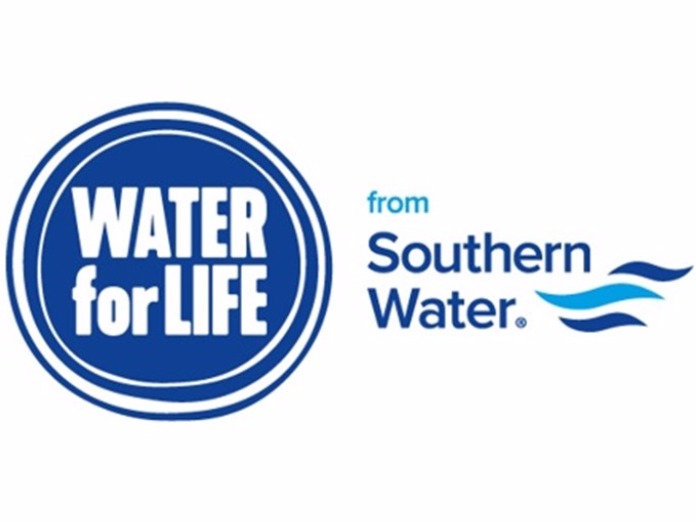It didn’t come as a surprise that Southern Water have again made headlines by being fined for dumping untreated sewage. On the July 9 the privatised firm received a £90 million wrist slap for discharging between 16 and 21 billion litres of untreated effluent into some of the most pristine water courses around.
Reports from fisherman painted the picture – “Sanitary towels, condoms and tissues could be seen in the mooring lines of vessels, there was a strong smell of sewage. Sewage was seen on the slipway, vessels had to be power-washed, ropes had to be replaced”.
“These offences show a shocking and wholesale disregard for the environment, for precious and delicate ecosystems and coastlines, for human health, and for fisheries and other legitimate businesses that operate in the coastal waters,” said Mr Justice Jeremy Johnson who chaired the inquest at Canterbury Crown Court.
Bumper profits
Southern Water’s CEO, Ian McAulay, took home over one million pounds in 2017, and a bonus to boot, whilst shareholders received £622 million between 2013 – 2017.

Chief Executive Officer
The practice of running down infrastructure, under-reporting statistics and failing to treat waste water has become standard across the board, with many water companies being complicit in the act in pursuit of profits for their directors and shareholders (this is shown in later reference to BBC Panorama).
The owners of Southern Water hide behind a firewall of organisational complexity. It is owned by SWS holdings, which is owned by Greensands Investments Limited, which is owned by a series of asset management firms; UBS and JP Morgan being recognisable examples. The combined worth of these two corporations alone is over five trillion USD.
Not the first time
Southern Water has garnered particular notoriety for the practice of illegal discharges. The finding is the latest in a slew of offences that date back over 10 years. In 2008 Ofwat fined the corporation £20.3 million for “systematically manipulating information to conceal its true performance over an extended period of time”.
In response to the latest proceedings, McAulay commented “We accept that in the past Southern Water let down customers and the wider community. We are truly sorry this happened and I have been working with a new team to build an ethical working culture that ensures we do the right thing for customers and for the environment.”
The Environment Agency began investigating Southern Water after concerning discoveries of E. coli in oysters, sourced from the river Swale. Although generally benign, some strands of the bacteria can cause infections within the stomach and other bodily organs if ingested. Following public health concerns, Margate Council took the decision to close the beach to bathers after another significant sewage spill from Southern Water.
So if E. coli can make its way into oysters, is there a chance that this and other contaminants that we send down our sinks and toilets, such as bleach, cosmetics and artificial hormones, will make it into more common foodstuffs?
Spillage around Rye
Water companies are required by law to disclose all events of waste water discharge to the Environment Agency. Their annual report publishes how many and for how long overflows take place. According to 2020 data, Southern Water discharged untreated effluent at 11 sites around Rye for a total of 1,217 hours. Outlet locations include Winchelsea Road, Wish Street and Fishmarket Road. A further 238 hours of spills came from the Camber Works off Lydd Road, where it enters the dyke system via Jurys Gap Sewer. Southern Water is known for misreporting on its activities, so this is likely a conservative figure.
Storm discharges are legal. In instances of extreme rainfall, companies are allowed to redirect incoming waste water to protect treatment facilities and prevent flooding. However, a recent exposé by the BBC’s Panorama found the water companies, including Southern Water, are abusing the formality to minimise the associated costs of treatment. Many episodes of illegal discharging were discovered were the minimum discharge criteria, defined by rainfall, was far from met.
Response from farmers
I spoke with farmers, who wished to remain anonymous, to ask if there is a chance that contamination of farm produce could occur. Although concerned about discharges, they said that there is little risk of crop contamination, one farmer adding “The risk of waste water contaminant after being filtered by the soil is a “negligible risk”. Further discussion with the Romney Marsh Drainage Board added that dyke crop irrigation is used for growing potatoes, however, these are grown far from the Camber treatment outlet.
Responding to the contamination of water courses one farmer pointed to a dated system no longer fit for purpose. “Investment in separating rainwater from sewage – at the moment the system is overwhelmed at times of heavy rain as the rainwater goes into the sewers – especially with old Victorian systems”. He directed me to the recent major Southern Water sewage leak at St Leonards as an example of this.
Defunding of regulation
The publicly funded Environment Agency (EA) is charged with keeping the water companies in check. At the hands of David Cameron their budget was slashed by over a half, and its regulatory function has been ground down since. A detailed report published this year by the Salmon and Trout Conservation Society stated that the EA’s “hands are tied” in most cases – in an organisation whose stated aim is to “protect and improve the environment”. The report commented:
“The system is broken. Our environmental regulator has been made subject to all manner
of deregulatory, enforcement-stifling initiatives, all designed to place economic growth above the environment. To make matters worse, Government has starved it of funds, with its dwindling staff confined to barracks and shackled to their desks.”
In the latest case against Southern Water the court found that intimidation, lies and the hiding of evidence were some of the tactics that Southern Water deployed to hide the truth.
Off the hook
True to Cameron’s intentions, water companies have been left to self regulate (section 5) by voluntarily submitting instances of law breaking. The government’s definition – “Self-reporting is when a water company reports a pollution incident from one of their assets to us before a member of the public or third party does”, adding that “Our [the government’s] expectation for the period 2015 to 2020 is that water companies have high levels of self-reporting.”
The prosecution at Canterbury Crown Court found that there had been “very significant under-reporting” by Southern Water.
The government’s assumption that water companies will confess to their crimes is not only naïve, but it is also dangerous. Malfeasance at the hands of these corporations has been allowed to proliferate across the country at great ecological cost. If the government does not set reasonable boundaries, and the courts do not operate beyond the odd theatrical indictment, it only goes to show how powerless our institutions are at apportioning justice in the name of democracy.
For further information on the river pollution crises look into The Rivers Trust.
Image Credits: Southern Water logo , Southern Water .




What a very inciteful article this was, brilliantly revealing just how badly the country is served by the owners of its utilities. There are a few, I am sure, who do try and actually prioritise their service, and what they are supposed to provide, but for the majority, it is all about the maximum profit, and how to use complex company structures to ensure it pays little tax and goes off shore. Southern Water has been requested to reduce leakage by the Regulator, but it is well behind on its target. All the house building that has happened has meant increased demand for water, and also the desperate need for an increased sewage system and treatment of the sewage. However, Southern Water is not alone, the other companies are just as bad. The gas companies were let off having the expense of providing storage facilities to ensure supply if there were shortages of gas coming from abroad, thus making the country’s supply that much more secure.
What interests me is that when it comes to moving to renewable energy, they appear to look to the taxpayer to help them. Suddenly subsidies are needed. A whole new extensive network of power supply is going to be needed to support electric cars, vans, lorries etc. and yet this si only about eight years away, and nothing appears to be beginning. Whole streets in our urban areas, and in towns like Rye, are going to have have power supplies for residents. So far, I hear no calls for changes to shipping or aircraft which are big polluters of the atmosphere: indeed, the way this government is acting it is actually encouraging long supply lines for food and other necessities from places on the other side of the globe.
As for the complex company structures, I can remember when David Cameron was going to improve transparency of ownership, and beneficial ownership. That has not been achieved. So, well, done to Alex Thomson for taking the lid off how this country is actually run and for whom.
Hi Allan. Thanks very much for your comments. Furthermore, this situation is a indication of just how important informative and honest journalism is. We have a situation where the majority of our national papers act on behalf of the corporations, partly as they are of course themselves corporations. I see part of the resolution, that is an effective mechanism for exposing the truth and holding power to acccount, as a reformation of the UK press. A grassroots movement of local investigations by the people, for the people. Give it a go. It’s rewarding and fun!
Ah good old privatisation! Healthy competition and cheaper prices for consumers, more like money for shareholders, bonuses for CEO’s and a shoddy service driven by profit.
So, unlike electricity, gas, telecoms there’s no choice as I can’t get my water services from any other company. It stinks like Southern Water! The only answer is to renationalise it and focus on a clean service not profits.
So, on that end who actually pays these fines, (not the public I suppose )